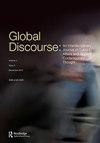发展与劳工抵抗:智利和阿根廷进口替代工业化的阶级构成视角
IF 1.4
Q2 INTERNATIONAL RELATIONS
引用次数: 1
摘要
关于劳动与发展的研究已经证明了劳动在分析上和政治上对于理解发展的政治经济学的重要性。对劳工制度的分析强调了重组工作场所和不断变化的劳动流程在全球经济价值链中的核心作用。全球劳工研究的研究说明了来自全球北方的劳工斗争的概念和理论如何努力捕捉全球南方劳工冲突的动态及其更广泛的影响。本文认为,自主主义“阶级构成”方法的复兴可以通过揭示工人在绘制发展的政治经济轮廓时失败的重要性,来推进工人对发展的看法。这种方法揭示了E.P.汤普森所说的劳工历史的“死胡同”对于理解国家和资本重组以遏制工人的要求和斗争的基础是至关重要的,从而为这些斗争的重新出现创造了新的条件。借鉴安东尼奥·内格里(Antonio Negri)早期工作的见解,本文将研究智利和阿根廷在进口替代工业化的轨迹中,工人阶级的组成和分解过程是如何发生的,并在早期危机中建立了新的劳工制度。本文通过使用智利纺织工业和阿根廷金属加工工业的行业期刊和出版物的原始档案研究来证明这一点。本文章由计算机程序翻译,如有差异,请以英文原文为准。
Development and labour resistance: a class composition perspective on import-substitution industrialisation in Chile and Argentina
Research on labour and development has demonstrated the significance, both analytically and politically, of labour for understanding the political economy of development. Analyses of labour regimes highlight the central role of reorganised workplaces and changing labour processes in value chains across the global economy. Research in global labour studies illustrates the ways in which concepts and theorisations of labour struggles emanating from the Global North struggle to capture the dynamics of labour conflict in the Global South and their wider impacts. This article argues that the revival of autonomist ‘class composition’ approaches can advance a labour perspective on development by shedding light on the importance of labour’s defeats when mapping the contours of the political economy of development. This approach reveals how what E.P. Thompson called the ‘dead ends’ of labour history are essential to understanding the grounds upon which state and capital reorganise to contain workers’ demands and struggles, thereby setting new conditions for these struggles to re-emerge. Drawing on insights from the early work of Antonio Negri, the article will examine how processes of working-class composition and decomposition occurred within the trajectory of import-substitution industrialisation in Chile and Argentina, establishing new labour regimes in its early crises. The article demonstrates this through original archival research using industry journals and publications from the textile industry in Chile and metalworking industry in Argentina.
求助全文
通过发布文献求助,成功后即可免费获取论文全文。
去求助
来源期刊

Global Discourse
Social Sciences-Political Science and International Relations
CiteScore
4.10
自引率
6.70%
发文量
64
期刊介绍:
Global Discourse is an interdisciplinary, problem-oriented journal of applied contemporary thought operating at the intersection of politics, international relations, sociology and social policy. The journal’s scope is broad, encouraging interrogation of current affairs with regard to core questions of distributive justice, wellbeing, cultural diversity, autonomy, sovereignty, security and recognition. All issues are themed and aimed at addressing pressing issues as they emerge.
 求助内容:
求助内容: 应助结果提醒方式:
应助结果提醒方式:


